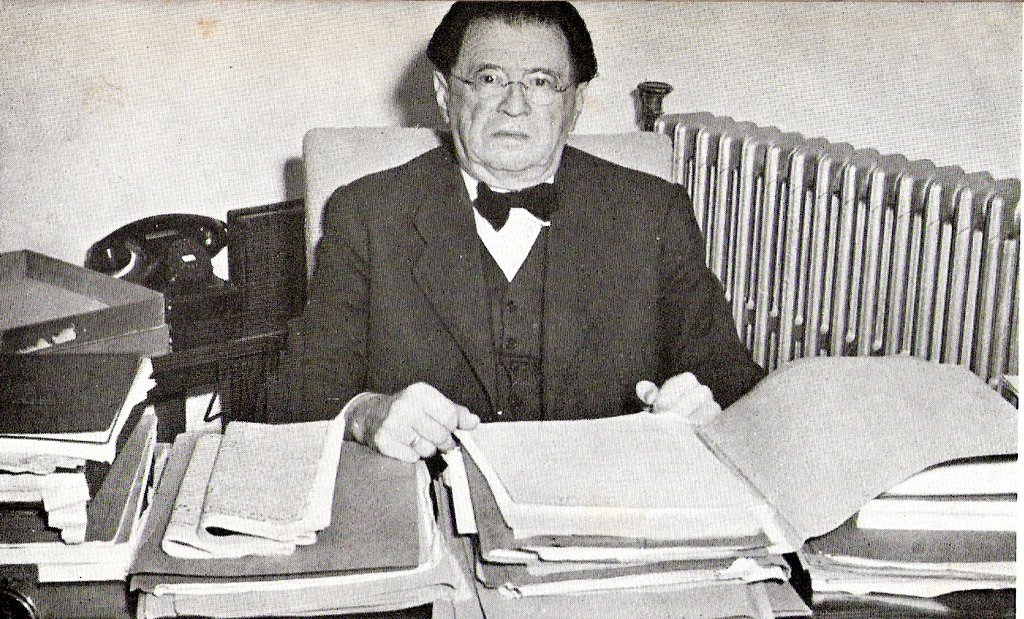What are the foundations of State Audit, why is it essential to free and democratic society, how did state audit develop in Israel - and how can the State Comptroller, in his role as the Ombudsman, assist you too?
An Essential Pillar of Democracy
State audit is an essential pillar in modern democratic regimes. An effective audit of government authorities ensures the existence of a free, democratic society.
After the Second World War, as more states adapted the Welfare State Model and expanded the public services provided to their residents, public administration became an integral part of the citizens' daily life. The citizens benefited from expanded public services that provided them with education, health care and employment security for all - however, in order to provide these services to the public, the states imposed bureaucratic apparatuses that became more significant with time. State apparatuses were designated to serve the citizens and ensuretheir rights, but their broad authority might lead to abuse of power for personal benefits, inefficient use of public resources, compromising human rights and public interest.
In order to cope with these risks, modern states use systems that monitor the administrative authority. The state audit examines whether the public institutes act in accordance with the law, and as part of that it examines integrity, protection of human rights, good governance, savings and efficiency.
Upholding Public Accountability
The status of the state audit is one of the criteria to determine the level of a state's democratic resilience. External audit over auditees and publication of the audit's findings reflect an important principle, according to which, civil servants in a democratic state serve as public trustees and they must serve each and every one of us. The audit helps to increase the civil servants' sense of accountability and contributes to the transparency of the public administration.
In most democratic states, there is an independent Supreme Audit Institution (SAI) whose role is to audit the government and other public bodies and assess their actions. The operational principles of the SAIs were regulated in the Lima Declaration and Plan of Action from 1977 and in the Mexico Declaration from 2007 and were accepted by the International Organization of Supreme Audit Institutions (INTOSAI).
These declarations emphasize the independence of state comptrollers and assert that state audit requires a broad freedom of action and authority to instruct rectification of deficiencies and publication of audits' findings.
For the audit work to be efficient, auditors must be provided with adequate resources and administrative and budgetary independence. The auditees must provide to the auditors all the information and documents necessary for their work.
State Audit in Israel
The State of Israel has recognized the importance of state audit ever since it was established and the State Comptroller Institute was amongst the first institutes founded after the establishment of the State of Israel. enacted by the Knesset on May 18th, 1949, granted the State Comptroller extensive authorities - in terms of the types of bodies subjected to his audit and in terms of the scope and depth of audit.
The basic law: The State Comptroller was updated several times (in 1958, the amendments and the original law were consolidated) and extended the State Comptroller's authorities. Thus, for example, in 1981, amendment 11 which granted the State Comptroller in his role as the Ombudsman, the tools to protect whistleblowers, was approved.
The original State Comptroller Law included two elements: the first - audit in its traditional sense - audit related to regularity and legality; and the second - audit related to savings and efficiency.
Over the years, the Knesset imposed additional responsibilities on the State Comptroller: to conduct audits on integrity (in 1952) and the effectiveness of the actions taken by the auditees; audits on the accounts of Knesset's factions (in 1973); on the current accounts of primaries' candidates (in 1992); and on the accounts of candidates and factions running in municipal elections (in 1993). At the same time, the audit fields were expanded and it was applied to additional bodies, such as, governmental corporations, subsidiaries of auditeess, higher education institutes, HMOs, etc.
In February, 1988, the Knesset enacted the basic law: The State Comptroller which establishes the legal status of the State Comptroller and Ombudsman, specifies the scope of his authority, by defining the scope of audit and the auditees that are subject to the audit: those that are naturally subject to an audit, and those that can be subjected to the audit in accordance with the law. The basic law states the auditees' duty to provide the State Comptroller, without delay, with all the information required to perform the audit.
The Ombudsman: Your Assistant vis-a-vis the Authorities
Ever since 1971, the State Comptroller has also been serving as the Ombudsman, and he is the authority to whom any person can file a complaint against a governmental, public body as specified by law. The role of the State Comptroller who serves as Ombudsman was also regulated in basic law: the State Comptroller.
Israel is the only state in the world in which the State Comptroller also serves as Ombudsman, and this unique combination entails many advantages. In his first role, the State Comptroller initiates audits regarding public bodies in order to ensure they act adequately - and in his second role, as Ombudsman, he handles complaints of individuals who were affected by those bodies.
More than once, accumulation of complaints regarding a certain deficiency leads to the initiation of an audit and to a more thorough examination of the deficiency, in order to find solutions, not only for the individual , but also for the benefit of the general public. In addition, the Ombudsman's office, as part of the process of handling the complaints, uses the information gathered by the audit departments.













